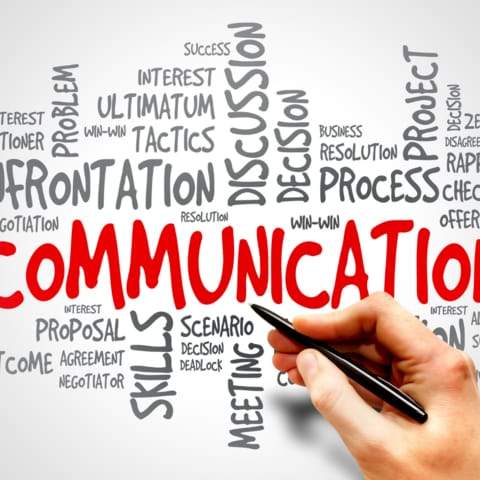Tips To Improve Your Relationship

Welcome to the Hijabs&More Blog
In our weekly blog posts, we talk about a variety of topics such as hijab fashion, the latest trends in hijab fashion, tips and advice for mothers, Muslim women, financial tips and more!
If you're looking for health tips to tweak or improve your lifestyle then click here.
There are a numerous number of articles, books, TV shows, documentaries and essays written with tips, tricks and guides to improve your relationship with your loved ones.
Our tips are taken from various articles, research, books and practicing some of these things in our lives. One thing is clear, no one is perfect, but as long as we try to improve on a daily basis then you're on your way to success.
Are you looking for ways or tips improve your relationships? (i.e. relationship with your spouse, with your friends, with your family or your children). We have some helpful and useful tips for you to improve your relationships.
1. Understand others before being understood.
This point is so crucial in any relationship, especially in your relationship with your spouse. In a relationship, when you hear something negative or criticism from your spouse, then the first reaction is to respond or defend your position. When both partners start defending themselves, then both of you are probably not listening to each other.
When one partner is talking, then the other should make an effort to fully listen and understand their spouse. The key is to let go of the expectation to think of a response or respond right away but take a moment to understand the other person. It is difficult to hear criticism but if you can get over your mind chatter then it will be better for your relationship.

2. Think about your partner's or other person's perspective
This trick is one of the most difficult to do in the moment because when you're being criticized by your spouse then you do not want to listen to them. If you let your curiosity lead you, then take the moment to understand your spouse's perspective. This strategy will allow you to see their point of view and it will shift your mindset from the negative to a positive state.
This strategy will also allow you to listen to your spouse, understand their point of view and come up with a solution or compromise that improve's your relationship and works well for both of you. This doesn't mean that you have to agree with your spouse - but it is about understanding their point of view. My challenge to you is to be curious about your spouse's perspective when you get into an argument!

3. Recognize your triggers and calm yourself down
Recognizing your own triggers and emotional pitfalls can be one of the best strategies to control your response and find a resolution in an argument. We all have past experiences that we bring into our daily interactions and can sometimes be a hinderance in fostering a better relationship with our spouse. If you're aware of your own blind spots, then you can prevent them from being a trigger for you in a heated moment.
This strategy will allow you and your spouse to be less reactive during an argument and you can improve your conversational skills. If you can take a deep breath (inhale to the count of four) and let it go (exhale to the count of 6) then you can reduce your stress by a significant amount in the moment. Remember that it is about building a relationship and it is not about this interaction or conversation only.

4. Pay attention to your partner's unmet needs
When you or your partner are criticizing, complaining or being negative about a situation, then there is a high chance that there is a deeper issue or problem that needs to be addressed by one or both of you. In an argument, pay attention to your partners unmet need or desire or complaint. Look deeper to find the emotion or need that they are looking for.
This strategy may take some time, practice and patience because it is not an easy task. During an argument, remember that your spouse wants to share an important issue with you and try to be curious about the deeper issue to find out more about this unmet need. By listening, you will be able to figure out the bigger picture or story that they are trying to tell you.

5. Communicate and be open about your concerns
If you have an issue with something and you have let it ferment for a while then it is best to take some time out, sit down with your spouse, be calm and talk about it in a kind way with them. If you resolve your concerns before they become issues, then you can resolve any problem with a kind conversation rather than a negative or criticizing argument with your spouse. Open communication is the key in fostering a better relationship with your spouse.
If you think that communication will result in a conflict then think again because unresolved conflict almost always results in more conflict in the future. This strategy will allow you to become aware of the current thought process of your spouse and allow you to resolve concerns before they turn into conflict.

6. Compliment your spouse and enjoy the small moments
Remember to compliment your spouse on small moments such as their look, something that they did for you, hugging them, saying good morning or saying I love you. This strategy will allow you and your spouse to feel appreciated and be seen which is a necessity for long term connection. Make sure that you pay attention to them in the most important parts of the day. If you're at work then you can take a minute to text something nice to them that shows that you miss them or want to talk to them.

7. Schedule Date Nights
We're in a pandemic right now, so it might not be a good idea to go out with your spouse. There are so many ideas to have little day nights in the house. For example, you can order dinner and enjoy some quiet time at home with your spouse. You can talk to friends, family or spend some time together on a walk with your spouse. It doesn't have to be fancy and can be a time where you enjoy each other's company without distractions!

Communication in a relationship requires constant attention. Start with the basics and establish rituals of communication and connection to ensure the longevity of your love and connection with each another. Remember to give your spouse full undivided attention when you are speaking to them which shows that they are important and matter to you.

There are many ways of calming your anger in the Sunnah; some of these methods are the following:
1. To say "Audhu billahi minashaytan nirajim"
أعوذ بالله من الشيطان الرجيم
2. If he is standing, then he/she should sit. If the anger fails to subside, then he/she should lie down
3. A person should remain silent
4. Make wudhu (with cold water)

Leave a comment